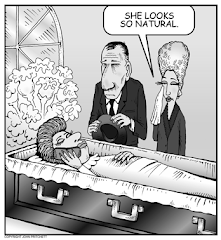
Social Networks makes possible the construction of flexible or multiple identities, as people may detach from their physical body. A person online may choose to put on a different body or identity that is different to when their physical body is present. This means that in online communication and any other forms of new media, users are involved in some form of identity management.
In the disembodied world of the virtual community, identity is ambiguous. It is therefore hard to understand the ‘true self’ of the individual as the people are free to take on new names and even change their genders and describe themselves in any way they may wish to appear. For example John can become Joanne.
People not only use the internet more and more to interact with others, but they use it to socialize, to generate some lasting relationships and even to develop a real social virtual life.
In the disembodied world of the virtual community, identity is ambiguous. It is therefore hard to understand the ‘true self’ of the individual as the people are free to take on new names and even change their genders and describe themselves in any way they may wish to appear. For example John can become Joanne.
People not only use the internet more and more to interact with others, but they use it to socialize, to generate some lasting relationships and even to develop a real social virtual life.
Social Networks enable it users to avoid giving out too much information when interacting with someone they do not have any information about. For example on Facebook users are able to choose who they want and do not want to form social networks with.
Social Networks thus provide places where online users are able to create and develop group identities. For example users of Facebook have members that share some form of group identities. Thus our online identities could be said to be influenced by of those we communicate with.

1 comment:
That is why its hard to trust people in virtual communities unless you know them in the outside world. People end up faking their identities because of identity theft issues or they want to explore new things. For example the John who wants to be Joane. This, I think, has an impact on our behaviour because one may end up wanting to exercise their virtual identity in the real world.
Post a Comment